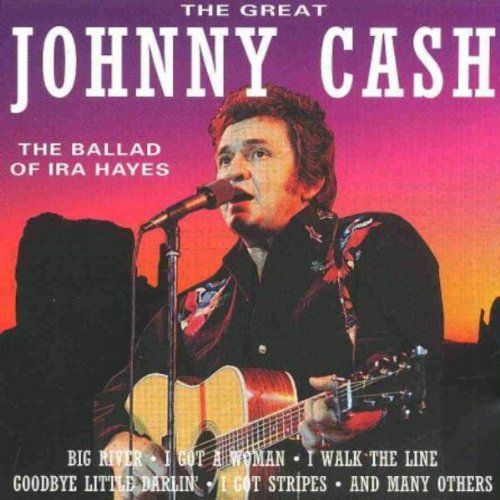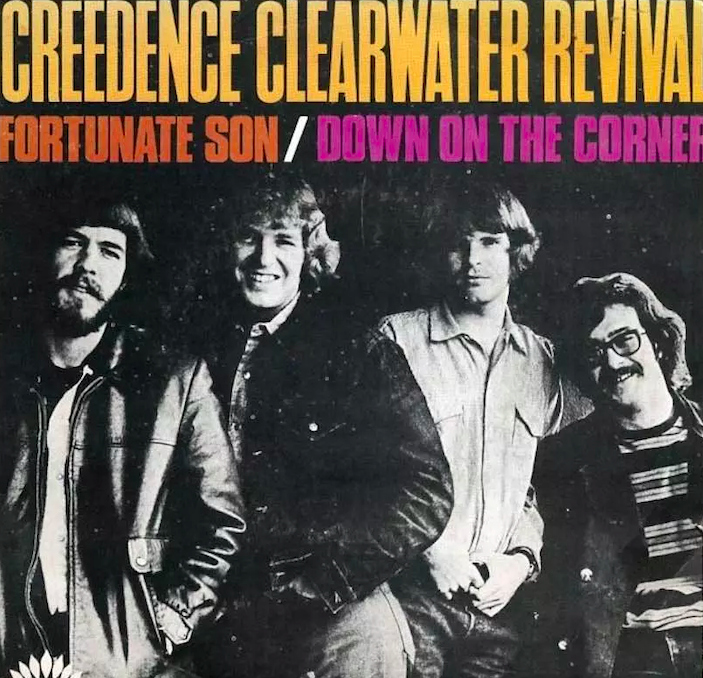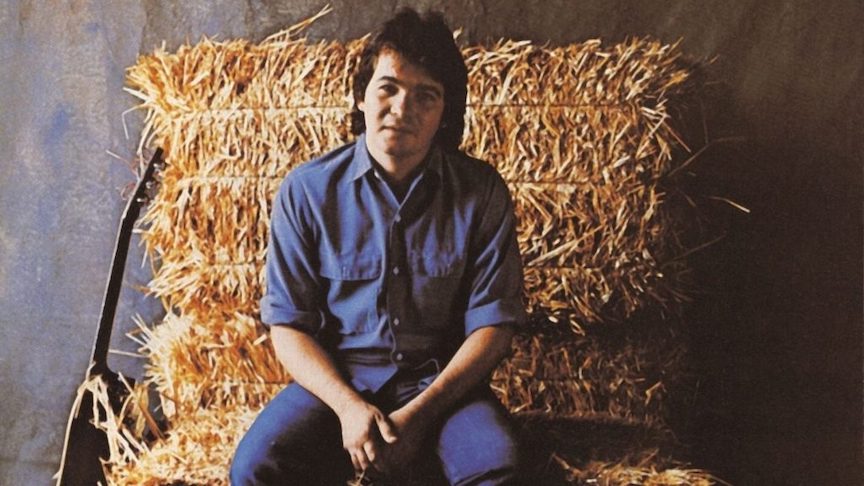November 11 is Veterans Day, a day set aside to remember those who served their country in the armed forces. And rightfully so. These men and women devoted a part of their lives – and often put their lives in harm’s way – to protect the values we hold dear.
Music and history are two of my passions, so it was only natural for me to see how veterans have been represented historically in song. I wondered in particular how veterans portrayed themselves in song – either by telling their own stories or having their stories told for them.
The following – in no particular order – is my List of Songs About Veterans.
When Johnny Comes Marching
Many of us learned this song in childhood and recall its rousing chorus about “men will cheer and the boys will shout… and we’ll all be gay when Johnny comes marching home.” Obviously a song of triumph and Johnny is coming home to a hero’s welcome. This Civil War ditty is consistent with pictures of servicemen returning home at the end of war to being greeted with cheers and who knows, maybe getting kissed by a total stranger. Who can forget the August 14, 1945, iconic photograph by Alfred Eisenstaedt of the smooching sailor and the nurse in Times Square on V-J Day?
And The Band Played Waltzing Matilda
In this song, an Australian veteran remembers answering the call to duty in 1915. He gave up his life as rover but that was not all he gave up when he answered the call. He found himself headed for Suvla Bay and the Battle of Gallipoli, one of the bloodiest battles of World War I. The British command had underestimated the strength of the Ottoman Empire forces and, as the narrator tells us “…in five minutes flat (they) were all blown to hell.” A double amputee, he returns home and years later he looks at the faces of “weary old heroes of a forgotten war” and wonders if it was worth it all.
The Ballad Of Ira Hayes
Ira Hayes was a Pima Indian who left his poverty-ridden reservation to fight as a Marine in World War II. The rights to the water the Pima needed to grow their crops were stolen by the white man yet Ira, other Pima, and other Native Americans joined the military to defend their way of life as well as the white man’s.

Ira was among the six US Marines shown raising the flag in Joe Rosenthal’s iconic photograph on Iwo Jima. Ira returned home to a hero’s welcome but the plight of his people would not improve. What’s more, Ira suffered from what we now call post-traumatic stress disorder (PTSD). He was not alone in his suffering.
Medal of Honor winner Audie Murphy also suffered from PTSD and slept with a loaded gun under his pillow.
The 8th Of November
Big & Rich tell the story of Niles Harris, an unassuming U.S. Army vet from Deadwood, South Dakota. On November 8, 1965, the 173rd Airborne Brigade on Operation Hump in War Zone D in Vietnam, were ambushed by over 1,200 Viet Cong. 48 American soldiers fighting with Harris lost their lives that day. So each year on the 8th of November, Harris puts on a suit and tie, and has a drink out of respect for his fallen brothers. Harris was only “nineteen and green with a new M-16 just doing what he had to do” as he fought for the Red, White, and Blue. For many years, 19 was believed to be the average age of the American infantryman serving in Vietnam. While Harris was 19, the average age was in fact 22. And 61% of the over 55,000 who died were younger than 21.
Born In The U.S.A
With its exuberant and prideful sounding chorus, many interpret “Born In The U.S.A” as a patriotic tribute to America. The chorus, as with so many of Bruce Springsteen’s songs, is indeed hopeful and prideful. Pride in what America can be. Hopeful for a better future. Yet, it points out the problems Vietnam veterans encountered when returning home. Applying for a job, veterans all too often heard, “Son, if it were up to me…” as the application was rejected. The song is not only about the plight of the veterans who returned from Vietnam, but those who did not return, such as the brother at Khe Sahn.
Sam Stone
John Prine served as an Army mechanic in Germany during the Vietnam War. He noticed a change in his friends who had been stationed in Vietnam. He tells their story through the fictional Sam Stone who becomes an addict to deal with the pain of the shrapnel left in his knee – and probably the mental anguish caused by the things he had seen and experienced in war.
The song does not mention Vietnam specifically and so Sam Stone’s story could be that of a veteran serving in WWII, Korea, Vietnam, the Gulf Wars, or Afghanistan. “There’s a hole in Daddy’s arm where all the money goes…” is a highly descriptive line without equal, telling at once his desperate need for escape and his neglect of those he loved.
Four Walls Of Raiford
This song was written and sung by Ronnie Van Zandt shortly before his death in the infamous 1977 plane crash. The song was not heard until 1987 when it appeared on Lynyrd Skynyrd’s Legends album. A veteran from the Florida/Georgia line is sent to the notorious Raiford prison to do “3 to 5 hard labor…” for armed robbery – a crime for which he may be wrongly accused. Not being able to take prison life, he manages to escape even though he knows that “if they find me they must kill me…” – if for no other reason than he can’t go back to Raiford because he can’t take that any more. Despite the hard times he has faced since leaving the military he is proud to have served his country. He asks that Old Glory fly proudly at his funeral and he be buried with his medals.
Readjustment Blues
Written by Bill Danoff and recorded by John Denver, it is a sobering account of the treatment of soldiers returning home after duty in Vietnam. The return was not met with ticker tape parades but parades of protest. How does one reconcile answering the country’s call to duty with the contempt and scorn the same country visits upon him when he returns home?
Didn’t I
Montgomery Gentry’s story of a combat veteran returning home who is painfully aware that family, friends, and neighbors view him differently than they did before he left. There is “… no ticker tape or five mile parades/Sayin’ thank you son, just folks that sit and judge me/Who ain’t seen or did what I’ve done?” These are the very same people he went off to war for, the ones for whom he faced the fears and the pain for – so they wouldn’t have to.
Unbroken
Most of the songs on this list are about Vietnam Era veterans. Jon Bon Jovi’s “Unbroken” speaks for veterans of the Gulf Wars, Iraq, and Afghanistan. It also speaks to service men and women who “were born to be of service.” Some paid a very high price. There were things they can’t remember and some things they can’t forget. And 22 will die of suicide each day. If asked someday, “Was it worth it to be of service in the end?” The blessing and the curse is they would do it all again.
Fortunate Son

CCR’s classic is often viewed as an anti-war song and an indictment of the Vietnam War. However, John Fogerty said, “The song speaks more to the unfairness of class than war itself. It’s the old saying about rich men making war and poor men having to fight them.”
In a time when the military and veterans often were the target of discontent about the war, “Fortunate Son” points out that most of those sent to fight the war had little choice. They were not “born, silver spoon in hand.”
Ballad Of The Green Berets
This is the most patriotic song on this list. Unlike the most popular songs during the Vietnam War, it paints a positive picture of the military. Only America’s best will become members of the Green Berets (the US Army’s Special Forces). Singer/songwriter Barry Sadler – a US Army Staff Sergeant at the time – said it was written in part to honor U.S. Army Specialist 5 James Gabriel, Jr., a Special Forces operator and the first native Hawaiian to die in Vietnam. Gabriel was killed by Viet Cong gunfire while on a training mission with the South Vietnamese Army on April 8, 1962.
Good Night Saigon
Billy Joel tells the story of war from the perspective of a Marine. Thought it is one person telling the story, he speaks in terms of “We” embracing the brotherhood of Marines who go through training together at Parris Island and then go into battle together. And in the end they were willing to all go down together.
For those who subscribe to Spotify, here is a link to a playlist of these songs.


